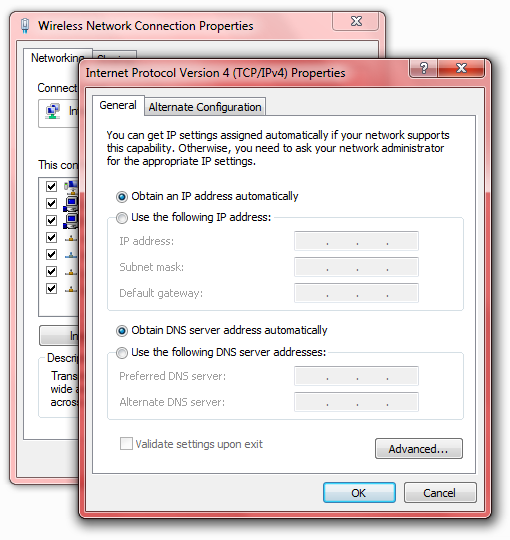How do I hide my IP address?
The most common method to hide your IP address is to use a proxy server in one form or another. A proxy server is a computer that offers a computer network service to allow clients to make indirect network connections to other network services. A client connects to the proxy server and then requests a connection, file, or other resource available on a different server. The proxy provides the resource either by connecting to the specified server or by serving it from a cache. In some cases, the proxy may alter the client's request or the server's response for various purposes.There are several implementations of proxy servers that you can use to hide your IP address (in an attempt to remain anonymous on the internet):
Website Based Proxy Servers
A Website based proxy server is a website that provides a form for you to enter the URL of a website that you wish to anonymously visit. When you submit the form the website proxy server makes a request for the page that you want to visit. The machine usually does not identify itself as a proxy server and does not pass along your IP address in the request for the page. The features of these sites vary (ad blocking, javascript blocking, etc) as does their price. Some are free and some charge. Examples of website proxy services are:Browser Configured Proxy Servers
There are also stand alone proxy servers that allow for you to configure your browser to route your browser traffic through that machine, which then makes a request for a page on your behalf, and then sends you the results. These are usually used at no cost to the user. Since they are accessible to the public these are often quite slow.There are a variety of types of these proxy servers:
- Transparent Proxy
This type of proxy server identifies itself as a proxy server and also makes the original IP address available through the http headers. These are generally used for their ability to cache websites and do not effectively provide any anonymity to those who use them. However, the use of a transparent proxy will get you around simple IP bans. They are transparent in the terms that your IP address is exposed, not transparent in the terms that you do not know that you are using it (your system is not specifically configured to use it.) This type of proxy server does not hide your IP address. - Anonymous Proxy
This type of proxy server identifies itself as a proxy server, but does not make the original IP address available. This type of proxy server is detectable, but provides reasonable anonymity for most users. This type of proxy server will hide your IP address. - Distorting Proxy
This type of proxy server identifies itself as a proxy server, but make an incorrect original IP address available through the http headers. This type of proxy server will hide your IP address. - High Anonymity Proxy
This type of proxy server does not identify itself as a proxy server and does not make available the original IP address. This type of proxy server will hide your IP address.
Installed Software Proxy Servers
There are a variety of companies and software packages available at either a onetime cost or at an annual subscription. These are usually faster and more reliable than the above proxy servers. Some of these services would include:- Hide My IP
- Anonymizer.com's Anonymous Surfing
- GhostSurf 2007 Platinum
- TOR
A virtual private network (VPN) protects your data and identity over public networks, like the Internet and wireless hotspots. Various protocols are used to create an encrypted tunnel that transports data securely. While a firewall may protect the data on your computer, a VPN will protect your data on the Internet. The goal of a VPN is to implement the same level of security provided by private networks at substantially lower costs. VPN services provide different gateway cities where the IP address assigned to your computer is located. This allows users to access websites only available to users from a certain country. This application is particularly important for travelers who need to access websites from their home country and for people living in regions rife with censorship, like China and Iran.






